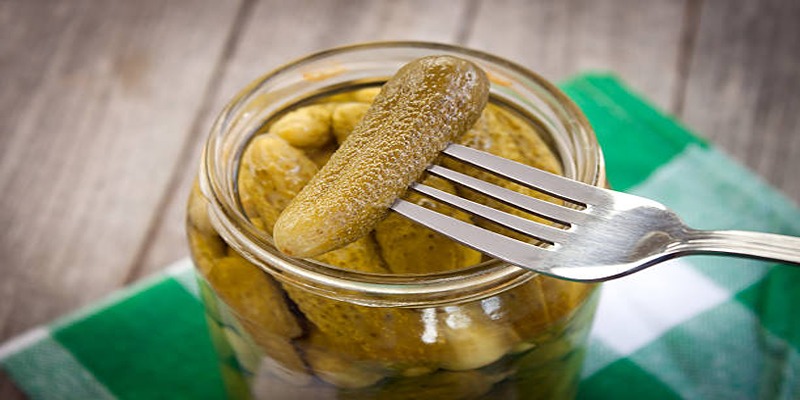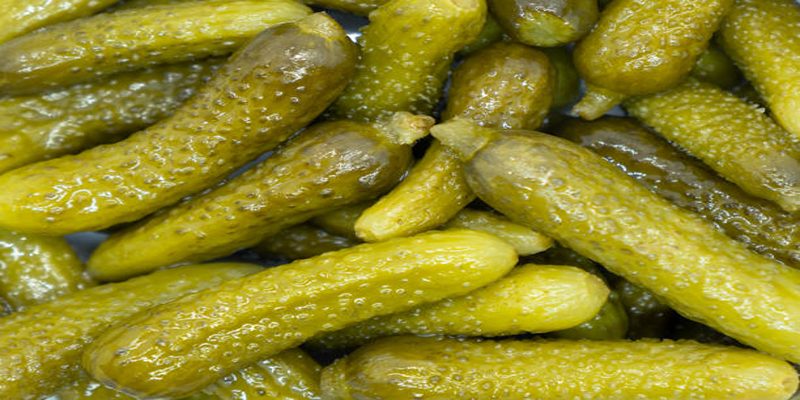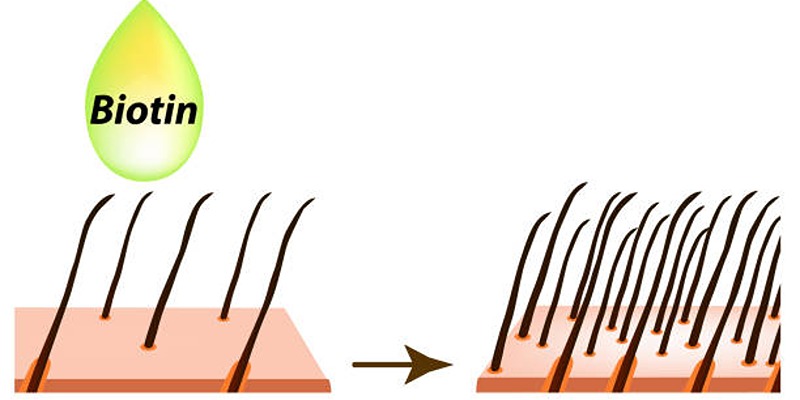Pickles, beloved by many for their tangy crunch, are often at the center of debates about their health benefits. Made by fermenting or soaking vegetables in a brine solution, pickles are known for their unique flavor and extended shelf life. They are a staple in cuisines across the globebe it the classic dill pickle, spicy kimchi, or the versatile sauerkraut. But beyond their culinary appeal, the question remains: do pickles contribute positively to our health? Some advocates tout their probiotic content, which can aid digestion and bolster gut health, while critics point to high sodium levels that could pose risks. This exploration dives into the pros and cons of including pickles in your diet, examining their nutritional impact and the role they might play in a well-rounded diet.
Nutritional Composition of Pickles

Pickles are low in calories, making them an appealing snack for those watching their caloric intake. A single dill pickle spear has only about 4 calories, yet packs a flavorful punch. However, one of the most notable components of pickles is their high sodium content, which arises from the brining process. A serving can contain anywhere from 700 to 1,200 milligrams of sodium, which is a significant portion of the daily recommended intake.
Additionally, pickles often contain small amounts of essential vitamins and minerals such as vitamin K, important for blood clotting and bone health, and potassium, which is vital for heart function and muscle contractions. While some pickles, especially those that are lacto-fermented, can offer probiotics beneficial for gut health, it is important for consumers to balance these nutritional components within the context of their overall dietary needs.
Types of Pickles
Pickles come in various types, each offering its own unique flavor profile and health benefits.
- Dill Pickles: Perhaps the most iconic type, dill pickles are cucumbers pickled with dill weed and seeds, often accompanied by garlic. They boast a classic taste that's both tangy and robust. While mostly enjoyed as a side or sandwich ingredient, their potential health benefits come from their vitamin K content and low-calorie nature.
- Sweet Pickles: These pickles are often flavored with sugar and spices, giving them a sweeter taste profile. Although they contain more sugar, they can be a favorable option for those craving something sweet with their meal. However, moderation is key due to their added sugar content.
- Kimchi: A staple in Korean cuisine, kimchi is made with napa cabbage, radishes, and a variety of spices. Known for being rich in probiotics due to its fermentation process, kimchi is celebrated for its potential to enhance gut health and aid digestion.
- Sauerkraut: Made from finely cut raw cabbage that has been fermented by lactic acid bacteria, sauerkraut is a probiotic powerhouse. It supports digestive health and offers a good source of vitamin C and fiber, adding nutritional diversity to a meal.
- Gherkins: Smaller than dill pickles and often sweeter, gherkins are commonly seen as a snack or condiment. While they share many benefits with larger pickled cousins, its crucial to be mindful of their sodium content when consuming them regularly.
Each type of pickle brings with it unique flavors and nutritional profiles, allowing individuals to choose according to their taste preferences and dietary goals.
Health Benefits of Pickles
- Probiotic Content: Pickles, particularly those that are fermented such as kimchi and sauerkraut, are rich in probiotics. These beneficial bacteria can enhance gut health by improving digestion and boosting the immune system. Regular consumption of probiotic-rich pickles may help maintain a healthy balance of gut flora.
- Nutrient Contribution: Pickles can be a source of essential nutrients like vitamin K, which plays a vital role in blood clotting and maintaining bone health. Some pickled vegetables may also provide small amounts of other vitamins and minerals, contributing modestly to dietary requirements.
- Low Calorie Option: With most pickles being low in calories, they are an excellent choice for those looking to enjoy a flavorful snack without significantly increasing caloric intake. This makes them a friendly option for weight management.
- Antioxidant Properties: Vegetables used in pickling often contain antioxidants that can help combat free radicals in the body. This potential health benefit is retained in pickles, providing some protective effects against oxidative stress and inflammation.
- Electrolyte Replenishment: The sodium content in pickles can aid in replenishing electrolytes lost through sweat after intense physical activity. While it's important to monitor sodium intake, athletes might find pickles beneficial in small quantities as part of their hydration strategies.
These health benefits highlight the potential positive contributions of pickles to a balanced diet, though its essential to consider them in moderation, especially due to their sodium content.
Potential Drawbacks of Consuming Pickles
- High Sodium Levels: One of the primary concerns with consuming pickles is their high sodium content, which can contribute to hypertension and increase the risk of cardiovascular diseases if consumed in excess. It is essential for individuals, especially those with salt-sensitive conditions, to monitor their sodium intake and balance it with other low-sodium foods in their diet.
- Added Sugars: Some varieties, particularly sweet pickles, contain additional sugars that contribute extra calories and can impact blood sugar levels. This can be a concern for individuals managing diabetes or those seeking to reduce sugar consumption for overall health.
- Potential for Bloating and Gas: The high sodium levels and the fermentation process in certain pickles can sometimes lead to bloating or gas in sensitive individuals. Those who often experience digestive discomfort should monitor their consumption and adjust according to their tolerance levels.
- Acidity and Dental Health: Pickles are often made in vinegar or brine solutions, which are acidic. Frequent consumption of acidic foods can erode tooth enamel over time, potentially leading to dental health issues. It's advisable to rinse the mouth or drink water after eating pickles to help neutralize the acidity.
- Allergic Reactions: Some ingredients used in pickling, like mustard seeds, spices, or certain vegetables, may trigger allergies in susceptible individuals. Those with known allergies should read ingredient labels carefully or opt for homemade pickles where they can control the content.
Being aware of these potential drawbacks helps individuals make informed choices about incorporating pickles into their diet mindfully and enjoy their unique flavors without compromising health.
Cultural and Historical Significance

Pickles have been an integral part of human cuisine across various cultures for centuries. Their invention is deeply rooted in the necessity for preserving food before the advent of modern refrigeration. This preservation technique allowed people to store vegetables for long periods, maintaining a food supply during seasons when fresh produce was scarce. Notably, the process of pickling has been referenced in ancient texts, with records dating back to 2030 B.C. in the Tigris Valley.
Different cultures have embraced the art of pickling, leading to a rich diversity in flavors and techniques. For instance, kimchi in Korea is not just a staple condiment but a symbol of Korean identity and serves as an integral part of many traditional dishes. In India, pickles made with an array of spices are an essential accompaniment to meals, showcasing the countrys regional spice variations. Similarly, sauerkraut, which is popular in Eastern European cuisines, represents both a significant nutritional resource during winter and an emblem of cultural heritage.
Conclusion
Pickles are a fascinating culinary element that bridge the gap between nutrition and tradition. While their vibrant flavors and potential health benefits can be valuable additions to a diet, mindful consumption is key given their sodium content and other potential drawbacks. Appreciating pickles involves understanding their historical and cultural significance as well as balancing their unique attributes within modern dietary patterns. By doing so, individuals can enjoy pickles not only as a flavorful addition to meals but also as a connection to ancient preservation practices and global culinary traditions.







